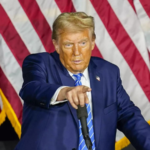NEW DELHI: Despite the demand from some partners for inclusion of investment protection treaties in the free trade agreements that are under negotiation, India would stick to its stand of signing separate treaties for investments and not making them part of FTAs, a senior official said.
India is currently negotiating trade agreements with the UK, European Union, Australia, Peru, Sri Lanka and Oman. In the ongoing talks with the EU and UK, the Bilateral Investment Treaties (BIT) is being negotiated separately.
The FTAs that India is negotiating do have their chapters on investment facilitation. It wants investment protection to remain separate as the nature of trade and investment disputes are separate.
With the United Arab Emirates (UAE) the investment agreement was signed two years after the Comprehensive Economic Partnership Agreement (CEPA). With the European Free Trade Association the Trade and Economic Partnership Agreement (TEPA) is different from the investment agreement, which is yet to be finalised. With Association of Southeast Asian Nations (ASEAN) also the investment treaty and FTA is different.
At the World Trade Organisation also India has opposed bringing in China-backed investment agreement – Investment Facilitation of Development (IFD).
The strict separation of trade and investment issues came about after India lost some high profile investment/tax disputes at international arbitration forums like Vodafone and Cairn. This also led to termination of 60 out its 80 bilateral treaties.
Earlier free trade agreements, however, had an investment protection chapter. India signed seven full-fledged FTAs, including five bilateral trade treaties with Sri Lanka, Singapore, Korea, Malaysia, and Japan and two regional with South Asian Free Trade Area (SAFTA) and Association of SouthEast Asian Nations, Four of these seven FTAs with Singapore, Korea, Malaysia Japan contain an investment protection chapter.
India cannot walk out of investment protection commitments in these four treaties without changing the entire agreement so it is stuck there. Nissan had brought international arbitration against India for unpaid incentives for its car plant under the India-Japan FTA. The matter was settled with negotiation in 2020.
The world over the newer FTAs have investment protection chapters. This has been the case with Regional Comprehensive Economic Partnership (RCEP), Comprehensive and Progressive Agreement for Trans-Pacific Partnership (CPTPP), European Union-Canada Comprehensive Economic and Trade Agreement (CETA), the Common Market for Eastern and Southern Africa (COMESA), the ASEAN Comprehensive Investment Agreement (ACIA), and also with other key bilateral FTAs like UK-Australia, UK-New Zealand.
The investment protection chapters in these trade agreements provide minimum legal guarantees to foreign corporations under international law that they would not be discriminated against, their investment will not be subject to expropriation without compensation and fair and equitable treatment.
However, the developed countries themselves have been seen opting out of Investor-State arbitrations as a dispute resolution mechanism. This is evident from their recently negotiated treaties like UK-New Zealand, UK-Australia, USA-Canada under United States–Mexico–Canada Agreement (USMCA).
Recently, many European nations as well as the UK have openly withdrawn from the energy charter treaty which provided for an arbitration mechanism for Investor-State dispute settlement. India will also continue to rely on separate investment treaties that lay down that investors will take recourse to the local legal system before filing for international arbitration. Other provisions can also be added with consultations to suit needs of the partners.
Source: The Financial Express

 New Year Looks Dull For Emerging Markets Due To Trump’s Tariffs, Trade Wars
New Year Looks Dull For Emerging Markets Due To Trump’s Tariffs, Trade Wars 